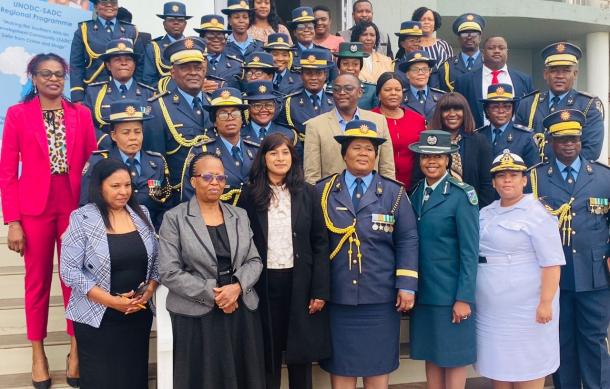
Nampol's Deputy Inspector General for Administration says it is important that Namibia understands the need for gender mainstreaming, as women and men have different experiences, needs, and priorities.
Major General Anna-Marie Nainda says failure to recognize and address these differences may lead to inequalities.
She was speaking during the two-day Gender Mainstreaming Workshop being held at Swakopmund.
The purpose of the workshop, among others, is to create an understanding of the impact of gender mainstreaming in the context of institutional transformation and the integration of a gender equality perspective within various sectors.
Major General Nainda says it is imperative to recognize gender mainstreaming as a guiding principle to ensure effective multi-sectoral services in the criminal justice sector.
Hence, all individuals involved in providing these services, including policy drafters, law enforcement officers, prosecutors, judges, and other service providers, should understand the importance of gender equality and the role it plays in promoting justice.
To achieve this, prioritization of gender equality in the workplace, the adoption of a holistic approach to effective services, and the development of gender-sensitive policies and guidelines are a must.
"Gender mainstreaming is not about creating a special treatment for women but rather ensuring that gender equality is integrated into all policies and programs. It is not a buzzword but a crucial tool for achieving sustainable development goals and addressing past gender disparities. In conclusion, gender equality can stimulate economic growth, boost private and public sector performance, and reduce income inequality. Allow me to quote Emma Watson: "It is time that we all see gender as a spectrum instead of two sets of opposing ideals," said Major General Nainda.
In a speech read on her behalf, senior Staff Officer of Gender at the Ministry of Defense and Veteran's Affairs Colonel Agatha Amadhila says women should be protected from all forms of sexual harassment while executing their duties.
"Ensuring women's protection from sexual harassment and all forms of violence, their equal and meaningful participation in the prevention and resolution of any type of conflict that may arise, and their full participation in all peace and security processes is vital to responding to every crisis and creating a better and more sustainable peace in our country."
Dr. Linda Naion, Coordinator of Gender-Based Violence Programming in the SADC region, says it is challenging to implement gender equality policies because they are overlooked by policymakers.
"We have a lot of challenges because we find that women are put into positions where they are not antiquated and informed that they don't have knowledge of how they can make a difference; sometimes they also think that they are there as a token; maybe they are not equipped; they are also embarrassed and heard about the decisions about the leadership they want to bring, although they are in a position of authority."





